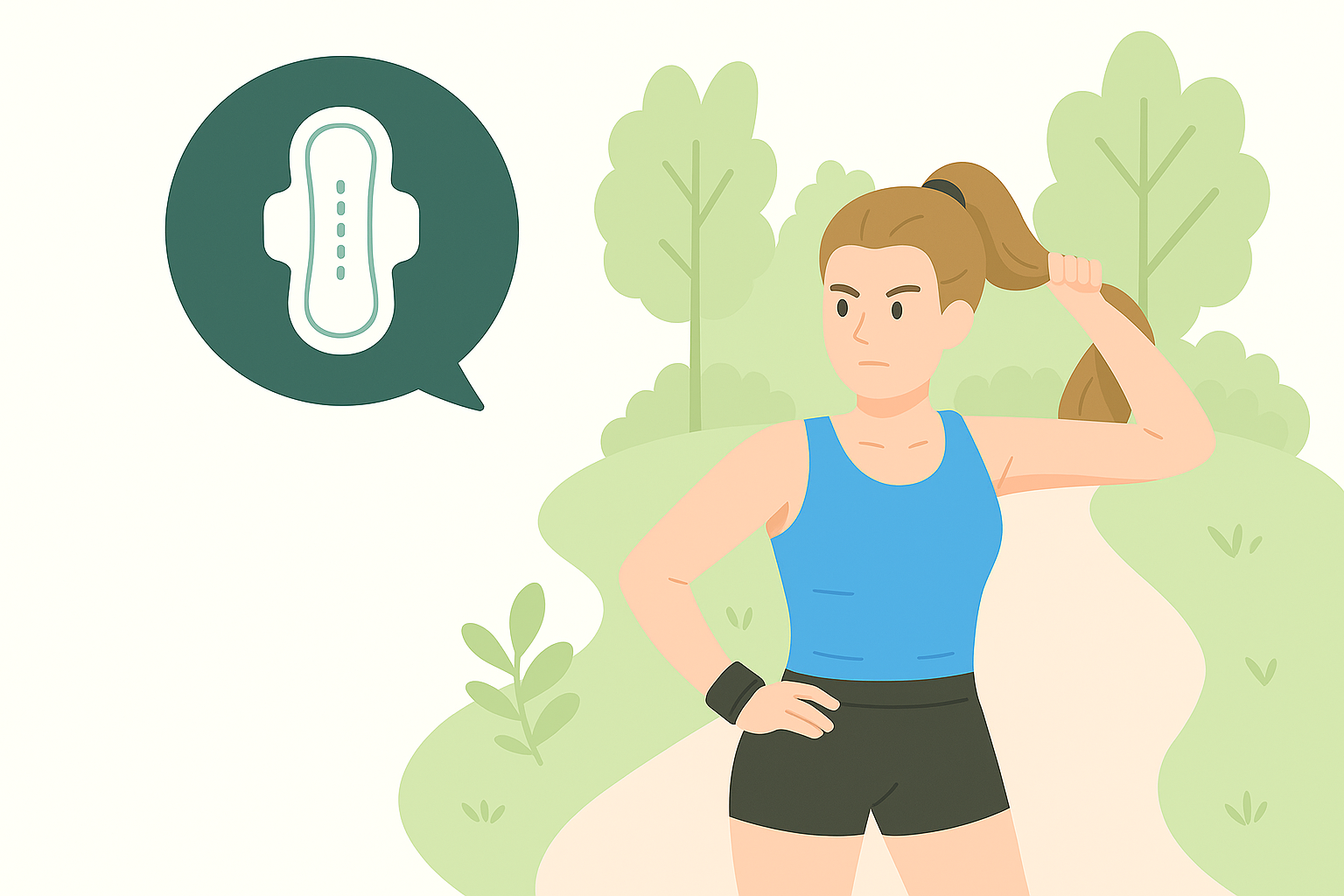

As a parent, you want to be your daughter’s trusted source of information during this important time. But finding the right words and knowing all the answers isn’t always easy. We’re here to help you navigate these conversations with confidence, armed with medically accurate information and practical advice.

Wondering if your child is getting close to starting their period? This article from Mayo Clinic offers gentle, helpful insight into the physical signs to look out for—like breast development and body hair. It encourages parents to start the conversation early, so their daughter feels confident, calm, and prepared. It’s all about making this transition feel normal and supported.
Takeaways:
🔗 Read the full article : https://mcpress.mayoclinic.org/parenting/signs-your-child-is-about-to-start-their-first-period/
This thoughtful guide from UNICEF reminds us how important it is to talk about periods openly and positively. It shares simple ways to start the conversation, bust common myths, and help kids—girls and boys—understand that periods are a healthy part of life. It also highlights the role of hygiene, access to supplies, and creating a shame-free environment where kids feel comfortable asking questions.
Takeaways:
🔗 Read the full article : https://www.unicef.org/parenting/health/talking-about-periods-at-home
This article is like a gentle chat with a trusted friend. Aimed especially at moms, it offers tips on how to prepare your daughter for her first period in a calm, comforting way. Sharing your own experiences, answering questions honestly, and offering support can go a long way. It’s all about making sure your daughter feels proud, not puzzled, when her period begins.
Takeaways:
🔗 Read the full article: https://montrealchildrenshospital.ca/health-info/advice-for-moms-talking-to-your-daughter-about-menstruation/
Yes. According to the American Academy of Pediatrics and the Journal of Adolescent Health, initiating age-appropriate conversations before puberty helps normalize menstruation and reduce anxiety when the first period arrives.
UNICEF and the CDC recommend using brief, honest conversations layered over time. Follow your child's cues and answer questions with clarity to avoid overwhelming them with too much detail at once.
The CDC emphasizes the importance of preparation. A small period kit with pads, wipes, and extra underwear, combined with practicing self-advocacy (like asking to visit the nurse), can support confidence and reduce stress.
According to the Journal of Pediatric and Adolescent Gynecology, severe dysmenorrhea can impact school and social life. If cramps are unmanageable with over-the-counter methods, evaluation for underlying causes like endometriosis is recommended. Talk to your doctor.
UNICEF and global health organizations suggest that inclusive education—teaching boys as well as girls—helps reduce stigma. Use matter-of-fact language and frame menstruation as a normal biological process.
Yes. UNICEF reports that stigmas surrounding menstruation persist globally, often labeling it as unclean. Address these myths with evidence-based, body-positive facts to foster respect and understanding.
Yes. ACOG notes that hormonal fluctuations during the menstrual cycle can affect mood. Encourage rest, healthy food, and self-awareness, and monitor for signs of more serious conditions like PMDD.
Yes. ACOG and CDC confirm that tampons and reusable options like period underwear are safe when used correctly. What matters most is providing your child with options and education to make an informed choice.
The Journal of Adolescent Health recommends building trust through continuous, nonjudgmental dialogue. Period talks shouldn’t be a one-time event—keep checking in and normalize ongoing conversations.
Journal of Adolescent Health https://www.jahonline.org
Pediatrics – American Academy of Pediatrics https://publications.aap.org/pediatrics
American College of Obstetricians and Gynecologists (ACOG) https://www.acog.org
Journal of Pediatric and Adolescent Gynecology https://www.jpagonline.org
UNICEF – Talking About Periods at Home https://www.unicef.org/parenting/health/talking-about-periods-at-home
Centers for Disease Control and Prevention – Adolescent and School Health https://www.cdc.gov/healthyyouth


Copyright © 2025 TeenPeriodKit. All rights reserved.